Jeremie Averous's Blog, page 126
January 4, 2014
How to Push Ourselves Hard – and Not Break
In our previous post ‘How Courage Is a Skill and How It Can Be Developed‘ we explained that courage can be developed through exercise; and one of these is to expose oneself progressively to harder and tougher situations.
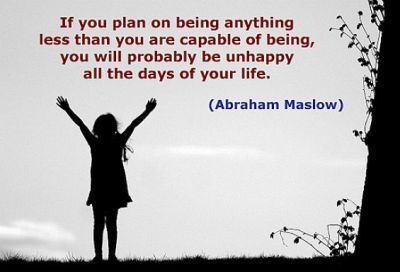 As a health reminder it is important to know how to stretch oneself without over-stretching to the point of rupture or to the point of becoming hurt.
As a health reminder it is important to know how to stretch oneself without over-stretching to the point of rupture or to the point of becoming hurt.
Christopher Penn says it well in this post about his experience in the field of martial arts:
“That’s the danger of a lot of the “self-actualization” advice being given. It’s conceptually reasonable advice – shoot for your dreams – but the uncomfortable truth is that many of us, myself included, don’t always have a realistic perception of where we actually are with our skills, with our capabilities, with our resources. We can believe we have abilities or resources we don’t actually have, and when we try to make our leap, we fall far short of where we believe we should be.”
“So how do you benchmark yourself? You put yourself in adverse conditions that are reasonably safe and you work on breaking your delusions until you know where you are. The easiest way to do that is to try with a reasonably low risk project that forces you to put all your skills to the test.”
It is important to stretch oneself outside one’s comfort zone, and it is also important not to over-stretch so as to avoid to get hurt. The only way is to test the limits and know where to pause for a while. It is only possible to identify this limit by trial and error – and most importantly, by staying conscious of your own reactions, of being aware of your own self.

December 22, 2013
Merry Christmas and Happy New Year celebrations!
We’ll be taking a break… and come back with a new post on January 4th. Until then, I wish you to you all and your families a very happy Christmas and marvellous New Year celebrations.

December 21, 2013
How Courage Is a Skill and How It Can Be Developed
Courage is a mental skill. As such, as we know now, it can nurtured and developed – because we can act to change our minds through regular exercise. That is a fundamental discovery of the latest decades as we move into the Fourth Revolution mindset.

How you need to improve your courage (daily)! – as a metaphor?
As with all mental capabilities it is thus possible to train and develop our courage. Even if we start without having any. It just requires consciousness of the need and dedicated commitment to train.
There are two approaches to this training, which are complementary:
dealing progressively by exposing ourselves with more ever difficult situations (like weight training)
increasing our knowledge of the situation at hand to diminish the ignorance and lack of skill factor, which increases our fear.
I decidedly believe that exposing oneself to the object of our fear is a great way to train ourselves to overcome the stumbling blocks that we sometimes set ourselves on the way to achieve what we want. I might have a hard time sleeping for a few days before a first, like a speech in front of a large audience or before a CEO of a large company, but the most important is to go for it, willingly.
How do you go for it yourselves?
For more information on this topic, read a complete post by Steve Pavlina, an experienced coach.

December 19, 2013
What’s the Point of Being Courageous?
What is courage? “Courage is not the absence of fear, but rather the judgment that something else is more important than fear.” – Ambrose Redmoon.
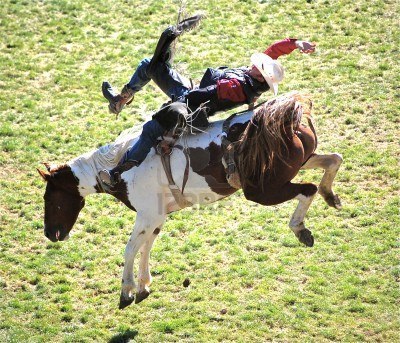
Is it courage when you don’t saddle up?
That idea was even expressed more forcefully by John Wayne: “Courage is being scared to death, but saddling up anyway“ (personal note: there is a border between courage and recklessness – that might be the saddle part).
The most important question remains – what is the use of being courageous? Anais Nin gives us the answer: “Life shrinks or expands in proportion to one’s courage“. We need to be courageous to expand our lives and reach out to our wants, beyond our comfort zone.
Courage in life is not an option. Yes, we are all scared. Still, what about saddling up, right now?

December 17, 2013
How to Overcome the Struggles of Unstructured Collaborative Organizations
There has been lately some noise about the transformations of the organization behind Wikipedia, and in particular how the ecosystem of volunteers is changing dramatically, and not necessarily for the best – shrinking considerably, becoming more closed, more conservative and defensive of established positions.
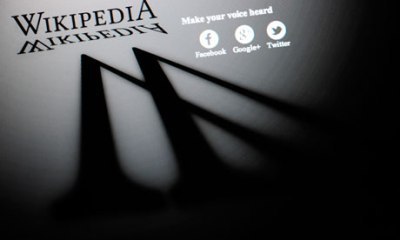 An excellent article on the matter – although a bit long – appeared in the MIT technology review: ‘ The Decline of Wikipedia‘.
An excellent article on the matter – although a bit long – appeared in the MIT technology review: ‘ The Decline of Wikipedia‘.
Wikipedia can be considered as an interesting experiment of unstructured organizations that will be increasingly typical of the Collaboration Age. And the way the Wikipedia foundation reacts to the challenge – by changing the software platform that supports this collaboration in a way that conforms to its goals and interests – is an interesting management response to this problem. Instead of dealing with people in the organization, they act on the very platform that supports their activity!
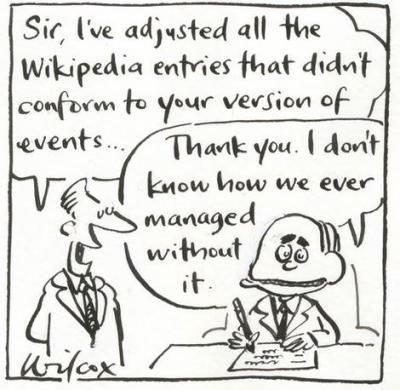 All in all, in spite of all the issues described in the recent studies on the Wikipedia phenomenon, it seems more that Wikipedia is maturing as an organization rather than a fundamental crisis. Faced with increased bureaucracy it needs to reinvent itself to achieve a stable and sustainable model. And it still needs, and will continuously need, a lot of editing as the cartoon on the left suggests!
All in all, in spite of all the issues described in the recent studies on the Wikipedia phenomenon, it seems more that Wikipedia is maturing as an organization rather than a fundamental crisis. Faced with increased bureaucracy it needs to reinvent itself to achieve a stable and sustainable model. And it still needs, and will continuously need, a lot of editing as the cartoon on the left suggests!
Let’s continue to watch Wikipedia and how it faces its challenges to learn how to make the self-organizing communities of the Collaborative Age work better.

December 12, 2013
How to Implement and Use an Internal Social Network in Organizations
For those of you faithful followers of the Fourth Revolution, you will remember that one of the forces that pushed me in that direction was to consider how internal social networks could release the creativity and productivity in organizations.

Where is your organization’s network?
Since 2010, the development of effective internal networks has been slower than I would have expected. Resistance to internal social networks has been stronger than expected. Professional communities tend to meet on public networks. Still, silently and in the background, it happens. And small and large companies that do implement them see a great difference in how they operate.
This excellent post on Social Media Explorer, ‘using an internal social network to solve real business problems‘, provides a good summary of what can be achieved with internal social networks. The entire piece is very interesting, I would just like to highlight this quote:
“Every company has a wealth of talent and knowledge internally that goes untapped. Just imagine for a second that employees were able to propose projects they want to work on and what talents they could bring to a cross-functional team.”
Indeed that would be a great business opportunity and would release organizations from the current great waste of talent.
When, at last, will you implement an internal social network to boost your business?

December 10, 2013
So, What is Consulting Really About?
One of the best definitions so far of Consulting is “the art of influencing people at their request. People want some kind of change – or fear some sort of change – so they seek consulting, in one form or the other” – Gerald M. Weinberg.
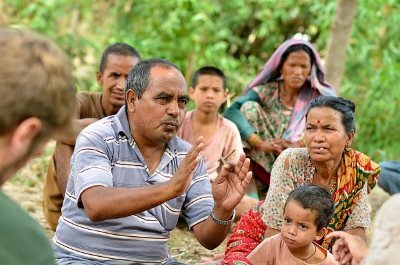
This looks like a consultant at work!
This probably means that a lot of ‘consultants’ probably are not consultants are per this definition – probably better defined by temporary support or project management support. Actual consulting is really about influence and change. On the other hand, many of us are actually consulting in our private or social life without knowing it.
Influencing people at their request requires 1) permission and 2) provocation and support.
Consultants, did you get permission? And then, are you using this permission effectively to provoke and induce change?

December 7, 2013
We’re Not Creators. We Are Transformers…
That statement in a post from Manal was a good reminder of so many considerations of creativity we have already developed in this blog.

Creativity stems from transformation
“Creativity does not mean making up something from scratch. It’s merely a transformation of the energy of an idea—that’s been there all along in the field of possibility. If you think you need to be creative, you don’t. You are a transformer of energy. Your existence—the way you are—is all the proof you need..”
I believe Manal only gets half the story there – at the same time, being a transformer also means reuse and transform the ideas of others, as so masterfully recalled by Austin Kleon.
In fact we probably need to consider both views to be complete on creativity. We need to be able to tweak and reuse what is around us; and at the same time infuse life through our energy in our creation – because without energy and dedication from our part, creation will not happen, or not be visible to the world. We need to be able to borrow and energize at the same time.
How good are you at reusing stuff in a creative manner? And how good are you at focusing your energy to create?
Hat tip to Manal and her so enjoyable posts, including the one containing this thought – The Field of Possibility.

December 5, 2013
So Many Interactions Happen During One Second on the Internet!
Have a look at the great infographics by Designly on what happens in one second on the internet (please scroll down to feel the real size of the interaction!).
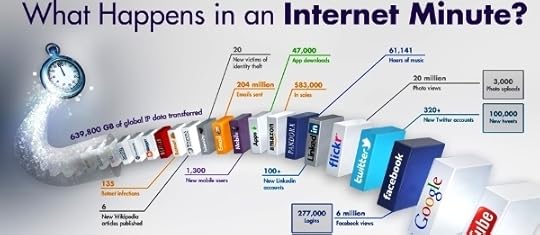
Follow the link in the post the infographics is much, much better!
As the site reminds us:
10 years ago Skype, Facebook, YouTube, Reddit, Twitter, Tumblr, Dropbox, and Instagram didn’t exist.
20 years ago there were only 130 websites total, Google wasn’t even around yet, and you had to pay for an email account through an ISP.
30 years ago there was no internet.
WOW. Worth a reminder. Still awesome.

December 3, 2013
What a New Model for Effective Journalism Entails
There is a new news broadcasting outlet that becomes ever more successful lately (and I am hooked to their daily emails I receive through subscription): Quartz (qz.com).
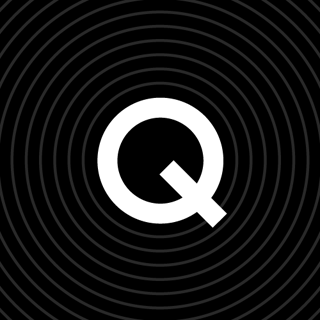 The development of this brand and the associated business model is explained in detail in these two excellent blog posts by Frederic Filloux (link to post 1 and link to post 2). What I retain from this detailed explanation is that
The development of this brand and the associated business model is explained in detail in these two excellent blog posts by Frederic Filloux (link to post 1 and link to post 2). What I retain from this detailed explanation is that
Journalists are professional journalists drawn from established newsrooms
Yet, journalists are asked to provide the full content including all the links and pictures, exactly like if they were independent bloggers (and the website works on the basis of a blogging tool)
Revenue is provided by a specific advertisement strategy with few high value ads, which makes it free and profitable at the same time
the platform is designed for sharing and spreading the word
This is clearly the future of information business: high value content with specific angles on the current news that can’t be found anywhere else and a deep socialization of interaction with readers.
Traditional news outlets must be scared to death!





